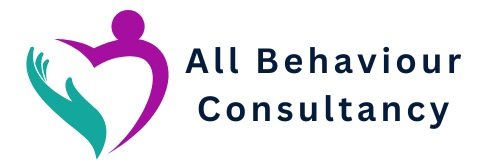Research-Backed ABA Case Studies for Autism: ABA Therapy in the UK
Research Backed ABA Case Studies for Autism
Applied Behaviour Analysis (ABA) has consistently demonstrated effectiveness in supporting individuals with Autism Spectrum Disorder (ASD) through evidence-based interventions.
Central to ABA is the use of positive reinforcement, which not only encourages desired behaviours but also creates a sense of inner comfort and well-being in Autistic children and adults.
Below, we present 10 research-backed case studies that highlight the successful application of ABA, emphasising positive and lasting behavioural changes.
1 . Enhancing Communication Skills in a Young Autistic Child using ABA
A case study involving a 6-year-old boy named Jake focused on improving communication, social interaction, and behavioural regulation. Through targeted ABA techniques, Jake made significant progress in these areas.
Source: Exploring the impact of ABA therapy for Autistic children: A case study
2. ABA for Promoting Independence in Adults with Developmental Disabilities
This ABA study showcases two adults with developmental disabilities who achieved greater independence in daily activities. The use of positive reinforcement strategies were key in promoting self-sufficiency and enhancing their quality of life.
3. Reducing Challenging Behaviours in Autistic Children; how ABA can reduce Biting
A young Autistic teenager exhibited aggressive behaviours that hindered social interactions. ABA techniques, particularly positive reinforcement, were employed to reduce these behaviours, resulting in improved social engagement and social well-being.
Source: Reducing Challenging Behaviours in Adolescents with Autism through ABA Techniques
4. ABA Interventions for Developing Social Skills in Autistic Children
A comprehensive ABA program was implemented to enhance the social skills of Autistic children. Through consistent positive reinforcement, participants showed remarkable improvements in initiating and maintaining social interactions.
Source: Teaching Social & Emotional Skills to Children with Autism, utilising ABA Therapy
5. Overcoming Food Aversions in an Autistic Child: ABA Therapy
An Autistic young child had a severe food aversion, eating only a few select items and resisting new foods. ABA-based exposure therapy and positive reinforcement were used to gradually expand the child's diet. Over time, they became comfortable with a wider variety of foods, leading to better nutrition and reduced anxiety at mealtimes.
Source: Using Applied Behaviour Analysis to Treat Food Refusal in Children with Autism Spectrum Disorder
6. Enhancing Daily Living Skills in Autistic Adults using Applied Behaviour Analysis
ABA interventions were applied to improve daily living skills in Autistic adults. Positive reinforcement techniques led to significant enhancements in personal hygiene, meal preparation, and other essential skills, contributing to greater independence.
Source: Improving Daily Living Skills in Adults with Autism Spectrum Disorder: A Review of the Literature
7. ABA Improves Academic Performance in School-Aged Autistic Children
A study involving Autistic school-aged children implemented ABA strategies to boost academic performance. Positive reinforcement was used to encourage participation and task completion, resulting in notable academic improvements.
Source: Effectiveness of ABA Strategies in Improving Academic Performance in Children with Autism
8. ABA Teaching Functional Communication to Non-Verbal Autistic Children
An ABA program focused on teaching functional communication to non-verbal Autistic children. Through positive reinforcement, children learned to use alternative communication methods, reducing frustration and enhancing inner comfort.
Source: Effectiveness of using ABA for Functional Communication Training for Children with Autism: A Review
9. Utilising ABA for Addressing Self-Injurious Behaviour in Severe Autism
This case study addressed self-injurious behaviour in an Autistic 14 year old child. ABA interventions, particularly positive reinforcement of alternative replacement behaviours, led to a significant reduction in self-harm and an improvement in overall well-being.
Source: The Use of Applied Behaviour Analysis to Treat Self-Injurious Behaviour in Children with Autism
10. ABA Therapy: Improving Social, Communication and Emotional skills in Autistic Children & Adults
ABA techniques were employed to help ASD individuals develop key Social and Communication skills, as well as Emotional Regulation skills. Positive reinforcement strategies enabled participants to manage school and home life more effectively, with better management of emotions, leading to increased inner comfort and social success.
Source: The Effectiveness of ABA Program Training on enhancing Autistic children and young adults
These case studies underscore the transformative power of ABA, particularly the role of positive reinforcement.
ABA should always enhance the lives of Autistic individuals, and at All Behaviour Consultancy, we make it our mission to spread our values of Positive Behaviour Support.
By focusing on each person's unique needs and promoting calming behaviours that lead to less conflict with the outer world, ABA therapy and interventions contribute to meaningful and life long improvements.
The aim is to make the Autistic individual more comfortable in our neurotypical world.
We prepare them for different scenarios to reduce the likelihood of stimulation overload which can result in challenging behaviours.
Get in touch with our dedicated and compassionate team of ABA Behaviour Specialists below if you would like support for an Autistic child or young adult.
Contact us
We are based in South London, and provide ABA therapy at home in the London areas, as well as offering online ABA services to the rest of the UK.
Please don’t hesitate to get in touch, we’d love to hear from you.


